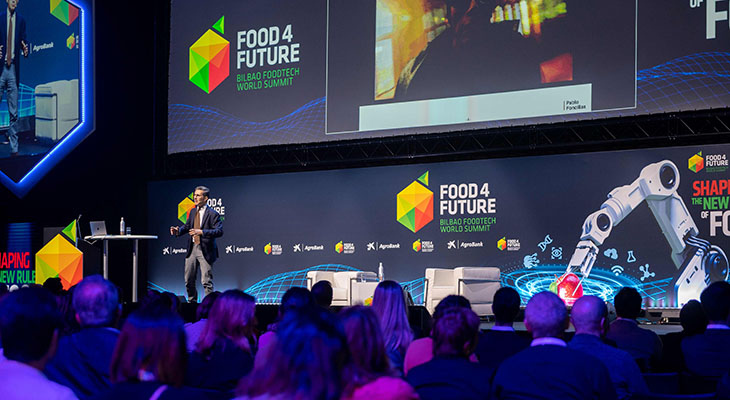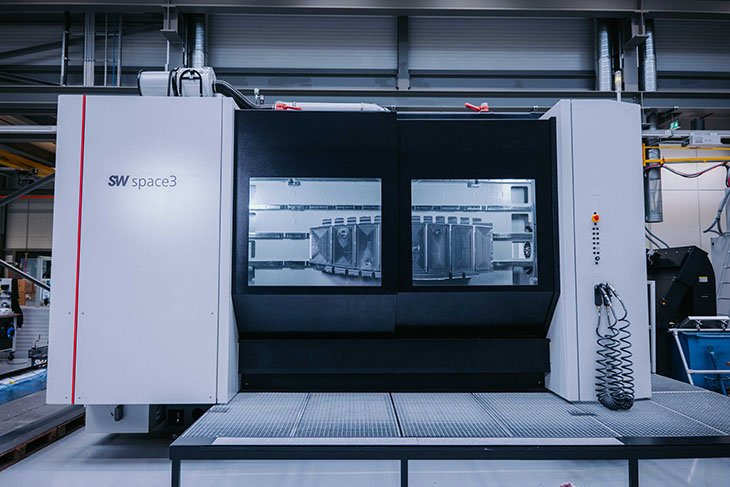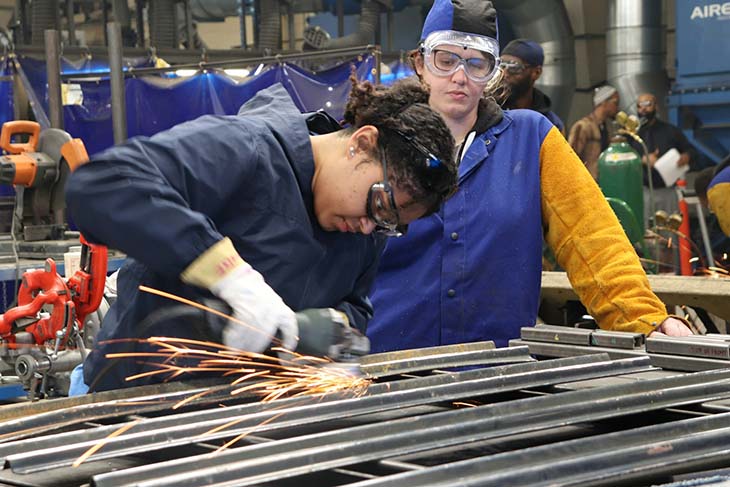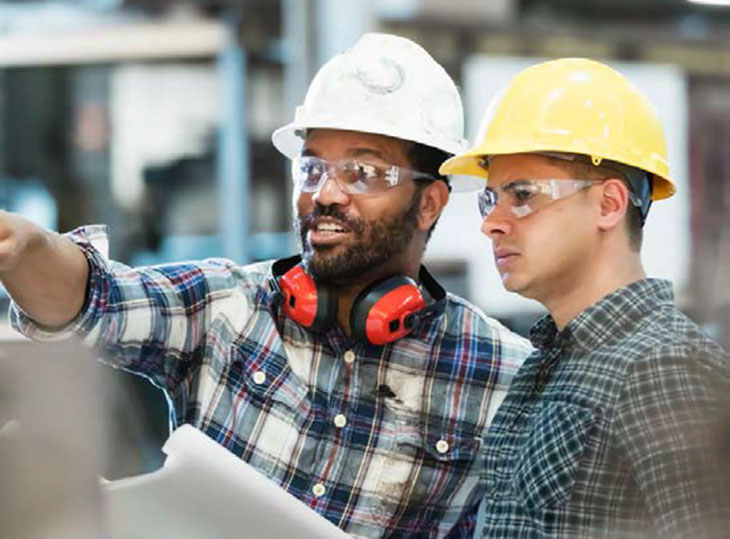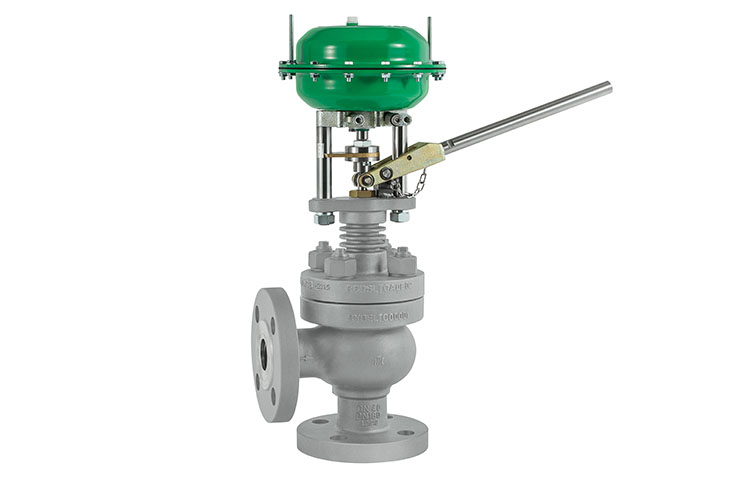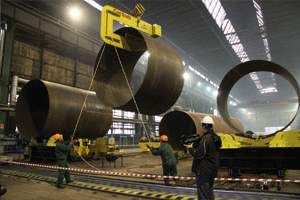A total of 287 exhibiting companies presented the latest technological innovations that are transforming the food industry.
As part of the Food 4 Future World Summit, 413 world experts have analysed the future of food and beverages with a focus on Artificial Intelligence, the circular economy and personalised nutrition.
Madrid, 19th May 2023 – F4F - Expo Foodtech consolidates its position as the leading European foodtech event with a new record of visitors. A total of 8,372 professional attendees from more than 34 different countries gathered in Bilbao (Spain) to learn about the latest technological innovations that are transforming the food industry in all its segments. F4F - Expo Foodtech has left an economic impact of more than 17 million euros in the city of Bilbao, which has become the world's foodtech capital.
This edition of F4F - Expo Foodtech has become more international than ever by bringing together the largest Japanese delegation of companies from the food sector. As the guest country, Japan presented its latest technological innovations for the food sector. Koji Miyaura, Director General at the Department of New Business and Food Industry, Ministry of Agriculture, Forestry and Fisheries (MAFF) of Japan, welcomed the opportunity to participate in such an important event for the industry. "Japan and Spain share a culinary culture and have also contributed significantly to improving the health of citizens. Both countries are developing technologies that improve food in all these areas and will improve the quality of life of the population," he said.
To present their innovations and showcase how they are transforming the foodtech sector, a total of 287 exhibiting firms presented their latest solutions in robotics and automation, processing and packaging machinery for the food industry. This is the case of firms such as AgroBank, AZTI, BCC Innovation, Blendhub, Chemometric Brain, Christeyns, Basque Food Cluster, CNTA, Eurecat, IFR, Tecnalia, CEIN, Tech Transfer Agrifood, Dassault Systemes, Essence Food, Hiperbaric, Ingersoll Rand, Knauf Industries, Lev2050, Multiscan, Sener and T-Systems, among many others. In addition, 124 international investment funds unveiled trends in foodtech investment and discovered the emerging projects of startups from around the world at the Foodtech Startup Forum.
The technology that makes the sector evolve
413 international experts from firms such as Bimbo, Campofrío, Coca-Cola Europacific Partners, Danone, and Nestlé, among others, explored the technological trends that are leading the sector into the new era of food. On the last day, Paloma Mas, Investor at Plug and Play, analysed the global outlook for investment in food technology to offer predictions on the competitiveness of the market. In 2022, the food and agrotech industry raised 29.6 billion dollars, 44% less than in 2021. "The reasons for the global decline are that investment in home delivery is finally declining, we are experimenting with our industry, the global investment crisis is also affecting the food market, and the lack of new unicorns makes it difficult to benchmark. We are not transforming the industry, we are creating a new one," he said.
The specialist, who reviewed how investments have decreased by continent, predicted that "compared to other industries, the European agro-technology sector is well prepared to compete on a global scale". Furthermore, she predicted that the entire African continent and Europe, and France in particular, will be the major players in agri-technology in 2023, a year which, in her opinion, will be the year of P: "Precision, Prediction and Personalised will be the key concepts to follow", she said.
Alessio D'Antino, founder and CEO of Forwardfooding, shared the evolution of the industry over the last 10 years and predicted that "agri-food technology will continue to be an important force in creating a more sustainable food system". Looking ahead, the expert expects major developments in the foodtech industry. "We have seen significant advances in regulation, which will accelerate the commercialisation of innovative solutions. We also see opportunities in areas such as 3D printing, fermentation and vertical farming," he explained. In addition, he added that regulations for food, including pet food, which is now being grown, have been updated. Other highlights, in his opinion, will be the development of molecular solutions for agriculture, advances in vertical farming, and the use of the microbiome as a guide for personalised nutrition.
Precisely, the importance of food personalisation to adapt to new consumer habits was another of the key topics of the event. In 2050, one in five people will be over 60 years old, and half of them will suffer from dysphagia, the difficulty in swallowing food, drinks or saliva. In this context, Rodolfo Brajcich, Global Director of Nutrition & Health at Sigma, a multinational in the food sector, presented Campofrío's healthcare line, one of the brands in its portfolio, so that people with this problem can eat healthily. "This is an example of an opportunity to continue developing solutions adapted to a specific group".
In turn, Rodrigo Jesús, CEO of Salus Optima, has considered it paramount to make dietary changes and improve metabolic health to reverse the worrying trend of obesity, which could affect more than half of the world's population by 2050. "There is a business opportunity in the field of personalised nutrition. Data is key to changing behaviours and creating better outcomes, and at the same time, knowing how our body reacts to different foods allows us to make better decisions". Finally, Jorge Tejero, co-founder of Personal Food, is committed to probiotics to help people live longer, which is why his company has developed chocolate rich in probiotics that strikes a balance between taste and healing function.









